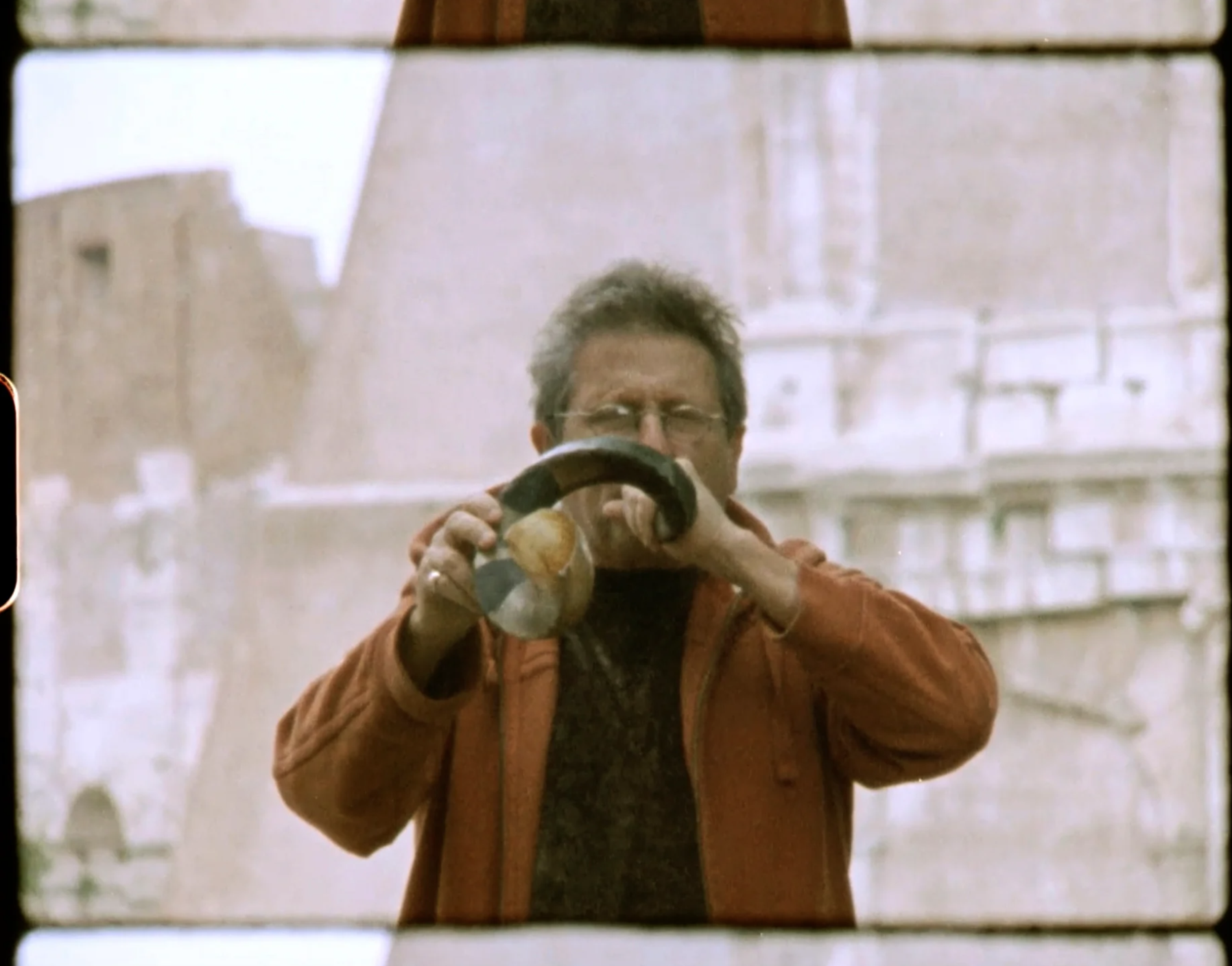Screening and live discussion with Éric Baudelaire

Biennale Matter of Art and the Academy of Fine Arts, Prague invite you to the screening and live discussion with the artist, director, and laureate of the Marcel Duchamp Prize Éric Baudelaire at the AVU Auditorium in Prague. In addition to introducing the topics and the working and creative processes, Éric Baudelaire and Tomáš Vobořil will talk about the ongoing archival research leading to a future project involving elements of the history of the Czechoslovak training center in Zastávka u Brna. Admission to the event is free of charge.
Program
5 pm Screening of 'When There Is No More Music to Write'
6 pm Artist talk
When There Is No More Music to Write
(Éric Baudelaire, 2022, France, Italy, 59 min.)
Alvin Curran is a mythical figure of the musical avant-garde: as an American living in Rome in the 1960s and the co-founder of the improvisation group Musica Elettronica Viva, he applied himself to dissolving the author into the group. He produced revolutionary sound works that combined composition and improvisation and broadened the notion of an instrument to include objects from nature and everyday life, opening up a range of new musical possibilities. As a resident at Villa Medici in Rome, Éric Baudelaire was introduced to the works of Alvin Curran by music historian Maxime Guitton, who was pursuing extensive research in Curran’s archive. Over the course of a year, Guitton and Baudelaire roamed the Roman landscapes that inspired Curran’s work, recorded marathon conversations with the musician, and traced back the history of a music revolution in light of the political movements that were shaking up Italy during those years of political turmoil.
Artist talk
“In my films I am interested in characters who struggle with the real, who try to reshape it, and who sometimes go astray. In searching for a form, I have often woven into the films traces of my own entangled relationship with their subjects – through a correspondence, an exchange, or simply camera movements that translate my hesitation in this search for an appropriate form. To echo the questions raised by the process of making the film, I often feel the need, once the film is finished, to search for expanded forms beyond the projection itself, to bring together other films and other artworks into the exhibition space, to publish booklets with detailed chronologies, to organize discussions with the public and guests from various fields of knowledge.”
Éric Baudelaire (1973) is an artist and filmmaker based in Paris, France. After training as a political scientist, Baudelaire established himself as a visual artist with a research-based practice incorporating photography, printmaking, and video. Since 2010, filmmaking has become central to his work. His feature films Un film dramatique, Also Known as Jihadi, Letters to Max, The Ugly One, and The Anabasis of May and Fusako Shigenobu, Masao Adachi, and 27 Years Without Images have circulated widely in film festivals (including Locarno, Toronto, New York, FID Marseille, and Rotterdam). When shown within exhibitions, Baudelaire’s films are part of broad installations that include works on paper, performance, publications, and public programs, as was the case in projects such as Après at the Centre Pompidou in Paris and The Secession Sessions, which began at Bétonsalon in Paris and traveled to Bergen Kunsthall, the Berkeley Art Museum, and Sharjah Biennial 12. Baudelaire has had solo exhibitions at Kunstinstituut Melly in Rotterdam, Tabakalera in San Sebastian, the Fridericianum in Kassel, the Beirut Art Center, Gasworks in London, and the Hammer Museum in Los Angeles, and he also participated in the 2017 Whitney Biennial, the 2014 Yokohama Triennale, Mediacity Seoul 2014, and the 2012 Taipei Biennial. In 2019 Baudelaire was the recipient of the Guggenheim Foundation Fellowship and the Marcel Duchamp Prize.
The event is supported by the Institut français de Prague and EUNIC Global; Language accessibility: English; Free admission